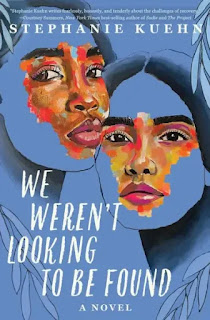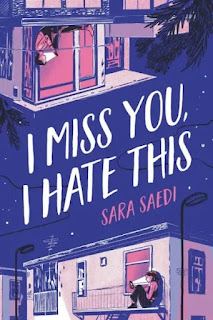Dani comes from a well-off family in Dallas. Her mother is an ambitious black politico and she can't stand it. To escape what she sees as the hypocrisy of her family, she drowns herself in alcohol, pills, and parties. And when it all gets to be too much, she runs away and ends up getting sent to Peach Tree Hills, a facility for young woman outside of Atlanta.
Camila loves dance and after three years of auditions she's finally gotten herself accepted to a dance school. But the stress of getting this far has taken its toll and Camila developed a habit of cutting to relieve her pain. The breaking point, however, is when her parents inform her that she can't go because the money that was to have paid for school is gone. In crisis, she tries to end her life and ends up at Peach Tree Hills.
Both girls are angry and frustrated, convinced that their issues have everything to do with their parents and other adults who want to keep them down. But through patient guidance from the facility's caregivers and the bond that develops between them, they begin to dig their way out on the road to self-discovery. A minor subplot about a cache of found letters written by a previous resident adds some pathos to their search.
The characters make this story. Dani and Camila are intelligent and articulate advocates for themselves. Even in the beginning when they don't have the focus they need to find their way out, they are fearless and determined. They make plenty of mistakes and do things that are plainly stupid, but these are their mistakes to make and they accept the responsibility for them. There are a few tears but never any self-pity from these girls. That makes this novel rather unique in a genre that tends to wallow in navel-gazing and self-hatred. There were times when the story seemed to drift (the whole letters cache being the most obvious example), but Dani and Camila kick ass from beginning to end.






